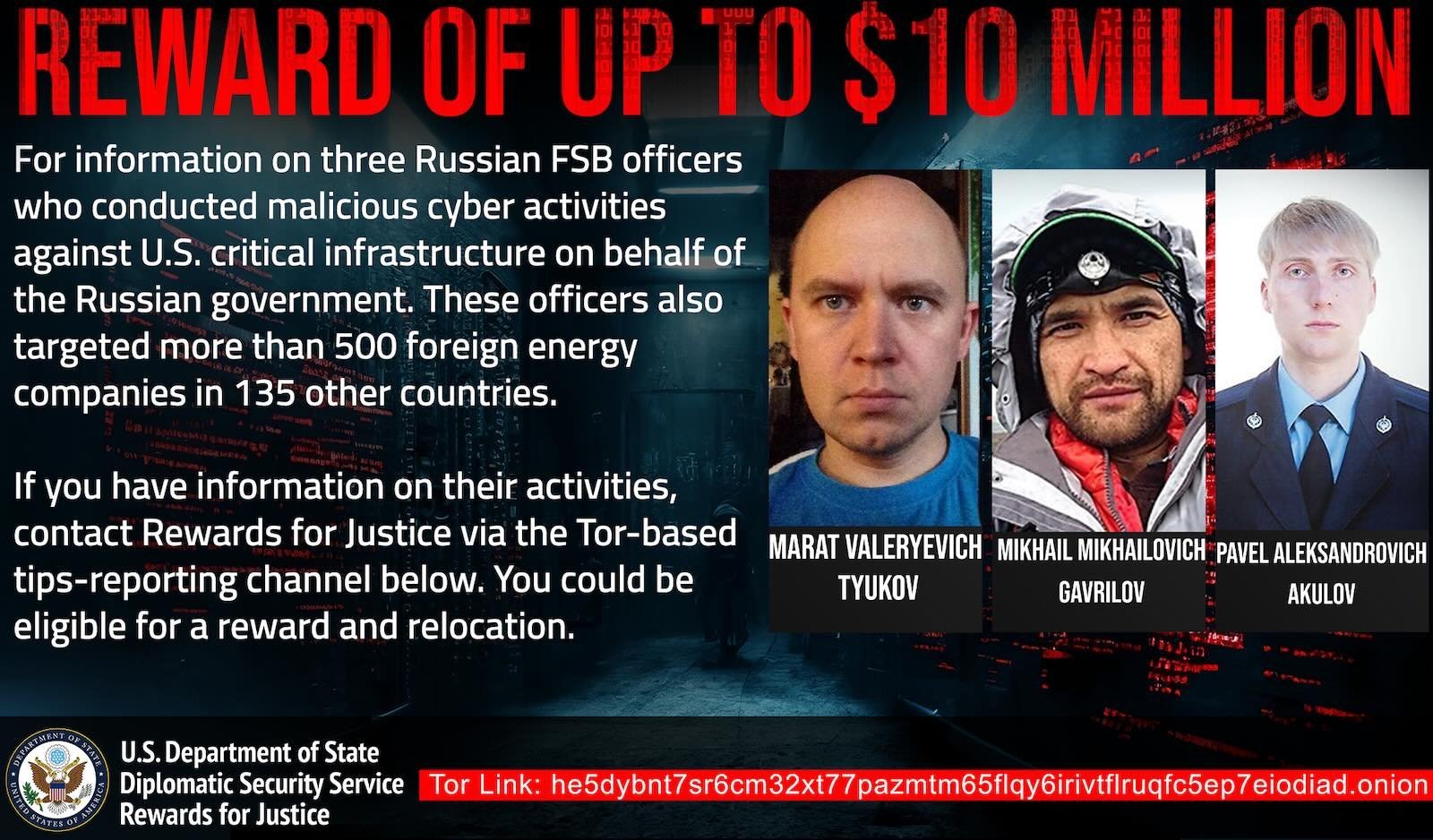The U.S. State Department is offering a $10 million reward for information on three Russian FSB officers linked to cyberattacks against American critical infrastructure, including energy and nuclear facilities. These hackers, part of the notorious Berserk Bear group, exploited a years-old Cisco vulnerability to breach global networks, escalating concerns over state-sponsored cyber warfare. This bounty underscores the urgent need for robust security practices and international vigilance against p

In a bold move highlighting escalating cyber tensions, the U.S. State Department has announced a $10 million bounty for information on three Russian Federal Security Service (FSB) officers—Marat Valeryevich Tyukov, Mikhail Mikhailovich Gavrilov, and Pavel Aleksandrovich Akulov. These individuals, operating under the FSB's Center 16 (Military Unit 71330), are key members of the hacking collective tracked as Berserk Bear, Blue Kraken, and other aliases. They stand accused of orchestrating cyberattacks on U.S. critical infrastructure, including government agencies and energy providers like the Wolf Creek Nuclear Operating Corporation in Kansas, as part of a campaign spanning from 2012 to 2017.
"For information on three Russian FSB officers who conducted malicious cyber activities against U.S. critical infrastructure on behalf of the Russian government. These officers also targeted more than 500 foreign energy companies in 135 other countries," the State Department declared in a recent tweet.
This isn't their first brush with international scrutiny—the trio was charged by U.S. authorities in 2022 for earlier attacks. More alarmingly, recent FBI warnings reveal they've been actively exploiting CVE-2018-0171, a critical vulnerability in end-of-life Cisco networking devices. This flaw allows remote code execution on unpatched routers and switches, enabling breaches across telecommunications, manufacturing, and education sectors worldwide. Cisco Talos, the company's cybersecurity arm, confirmed the group's "aggressive" exploitation of this vulnerability, urging immediate patching despite the devices being obsolete.

The implications ripple far beyond immediate security patches. Berserk Bear's decade-long focus on U.S. state, local, and aviation entities—coupled with similar bounties like the $10 million offer for RedLine malware creator Maxim Alexandrovich Rudometov—signals a troubling pattern: state-sponsored hackers are weaponizing outdated infrastructure to destabilize global systems. For developers and security teams, this reinforces the non-negotiable need for rigorous vulnerability management and defense-in-depth strategies, especially in critical sectors. As the State Department’s Rewards for Justice program calls for tips via Tor, this bounty isn’t just a headline—it’s a stark reminder that cyber conflicts are fought in code, and vigilance is the first line of defense.
Source: BleepingComputer

Comments
Please log in or register to join the discussion